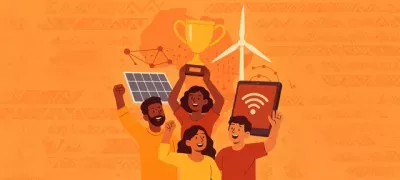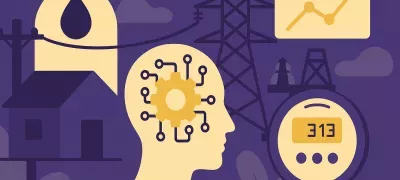Why is the Digital Energy community interested in geospatial technologies?
Geospatial data is of interest for a wide variety of applications, but the link with energy is less well known. We hope that this study will help to shed some light on this. In it, we take stock of the state of the art and the market, particularly in three areas: network planning and deployment, in relation to the challenges of access to energy; environmental and climate risk analysis for power systems; and asset management, in particular the optimisation of maintenance policies.
The Digital Energy programme was naturally designed to address these issues, because in addition to the theme of digital innovation, these applications are conducive to partnerships between major players and start-ups or technology companies, making increasing use of AI. In France, the Copernicus challenge illustrates the potential for this type of cooperation. The study is based on around forty interviews, reflecting the diversity of the players involved: the panel includes start-ups as well as industrial groups, utilities and public agencies.
Do you think that interest in these solutions will continue in the future?
Yes, for several reasons.Upstream, the proliferation of constellation programmes and the dynamism of the private sector will continue to supply the sector with data.
Technical progress is also continuing to extend and diversify the areas of application. Image resolution is increasing: it is now 30 cm and could be down to 10 cm in the next two or three years. Revisit periods[1] are decreasing, up to twice a day for satellites in low orbit. Radar images diversify the nature of the data and the fields of application; they can be used for altimetry or motion detection, for example, and can be used in combination with conventional imagery. Spatial data can also be combined with aerial data or information gathered in situ.
The widespread availability of open source data is also a catalyst. This is particularly the case for all the uses linked to network development planning, in connection with access to energy or urban densification.
Of course, processing this data raises issues of processing capacity. This is where start-ups have a role to play in providing appropriate software solutions.
Finally, falling costs will continue to stimulate development, particularly by influencing competition with other types of data - imagery from drones or helicopters, for example.
Are these technologies of particular interest to Africa?
Yes, and this interest has been demonstrated by previous editions of the Digital Energy challenge, with several winners presenting projects using geospatial data.
What's more, certain applications lend themselves particularly well to the African context. For example, geospatial data can be used to plan the deployment of networks, providing a better understanding of land and structures, possibly in conjunction with other data sources. Vegetation management applications are also of particular interest in equatorial zones.
We hope that this study will demonstrate the potential of geospatial technologies for the energy sector in Africa and stimulate innovative projects in this field, within the Digital Energy community and beyond.
[1] Time required for a satellite to pass over the same point.



